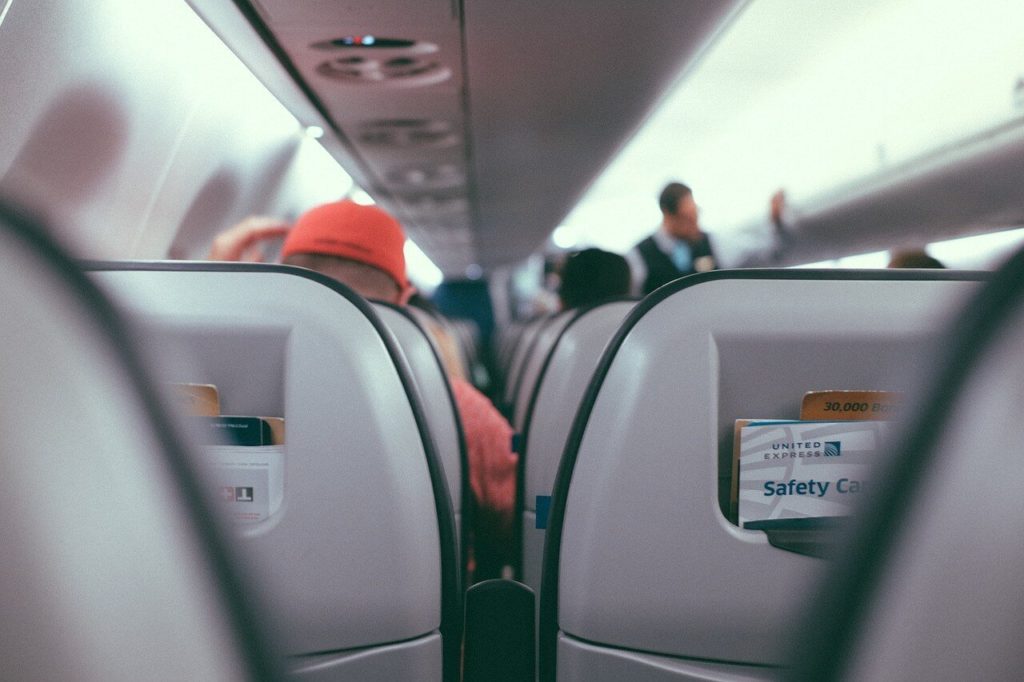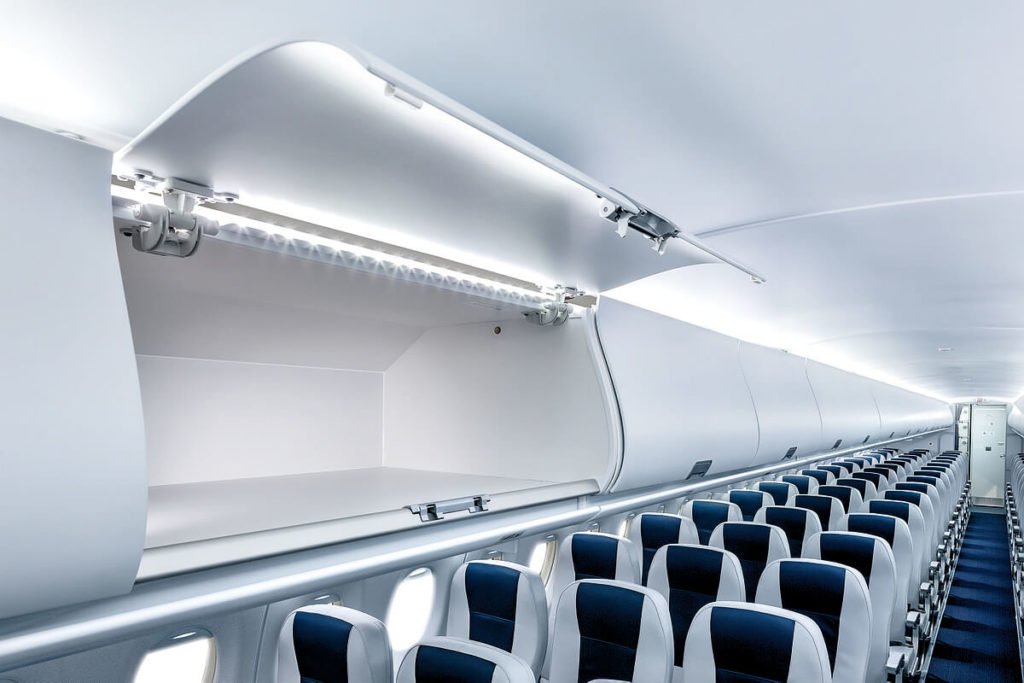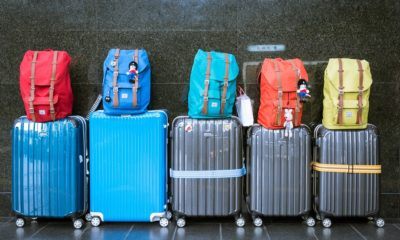Business
Here’s why personal space is a vanishing commodity on airplanes
When it comes to personal space on airplanes, what portions can a passenger truly control?

Colder weather brings with it one certainty for air travelers: the start of space wars.
You know what I’m talking about, don’t you? Sweaters, jackets and bags overpacked with holiday presents make small economy seats feel even smaller. The disagreements start with the overhead luggage compartment and extend to space under and between the seats.
It’s no secret that space is at a premium. The situation is so bad that the government decided to regulate the minimum size requirements for seats in the FAA Reauthorization Bill passed in October.
A survey by the market research firm CivicScience finds that passengers are deeply divided about personal space on planes. For example, it reported that 78 percent of U.S. adults agree that the window seat has control of the window shade. Only 21 percent of adults surveyed said the middle seat has the right to both armrests; 53 percent said it does not. Interestingly, of the 21 percent who think the middle seat has the right to both, the majority are men. (The correct answer in just a moment.)
So how do you win the space war on a plane? The short answer is: You don’t. Go for a cease-fire instead. Many airlines have quietly stripped almost everything that once came with economy-class tickets, including a generous amount of personal space, a meal, a seat reservation, a checked bag, even a carry-on bag. That has left passengers fighting for what’s left.
Here’s what’s at stake:
Armrests
They only belong to you if you’re sitting in the middle seat. And who wants to sit in a middle seat? “The rule is, if you share an armrest, the person in the middle generally gets to use both,” says San Francisco-based etiquette consultant Lisa Grotts. If you’re in an aisle or window seat, yield to the passenger in between and be careful when you move your elbows,” she adds.
Overhead luggage bin
That’s community property, no matter where you’re sitting. But you can’t store whatever you want in one of them. “Jackets and oversized garments belong on the floor in front of the passenger on packed flights,” explains frequent flier Jawn Murray, a television host from the District. “It is totally inconsiderate to fill up limited overhead space with bulky coats when people are trying to keep from checking their carry-on bags and need the overhead space.”
Space in front of your seat
It’s yours, mostly. Airline insiders I’ve talked to describe it as a “shared” space that belongs to you by default until someone leans into it. “Leaning your seat back should include a quick ask of the person directly behind you,” says frequent air traveler Michael Alexis, a strategic consultant who regularly commutes between his home in New York and Beijing. But what comes next is a negotiation. How far back can you lean before the passenger behind you is wedged in?

The overhead luggage bin is a community property, which means fliers can’t just store whatever they want in it. (Photo by SuperJet International via Wikimedia Commons. CC BY-SA 2.0.)
Space under the seat in front of you
That’s yours, within limits. If your carry-on bag is so large that it pushes into the personal space of the person in front of you, then you’re back to negotiating with the passenger in that seat.
Window shade
If you’re sitting in the window seat, you control it — mostly. “For the window shade, you don’t own it as much as you are responsible for it,” says veteran business traveler Jeffrey Walsh of Delran, N.J., who founded a social network for travelers called Nomo FOMO. “If you are looking out of the window and trying to enjoy the sunset, then you can keep it up to enjoy. However, you should take into consideration others around you.” For example, if you’re not looking out the window on a long flight and the sun is low on the horizon, causing a glare, consider closing the shade. Also, follow the instructions of the flight attendants. When they ask you to close the shade, do so.
These rules may seem picayune, but frequent fliers take them seriously. Although they’re often unstated, they are nonetheless enforced by passengers or crew members.
Tres Roeder, who runs a consulting company in Cleveland and flies often, has adopted this exact definition of personal space: “It’s the space in front of you and next to you, the floor space beneath the seat in front of you, and the head space above you.” When someone invades it, he doesn’t immediately fight back but tries to negotiate a truce.
“We’re all smashed in economy class like sardines so we should work together,” he says.
It shouldn’t have to be that way. Passengers should have enough space in the overhead bins, in their seats and below their seats. But eliminating space is part of the airline business model, says Brent Bowen, an Embry-Riddle Aeronautical University professor who publishes the Airline Quality Rating.
“They want to take the space away from you — and then sell it back,” he says.
Did passengers ask for any of this? If so, I haven’t heard from them. Airlines argue that the squeeze is a result of customer demand for cheaper seating.
But none of this would be happening if the U.S. airline industry actually competed for your business. With more than 80 percent of domestic traffic controlled by the four largest U.S. airlines, the big carriers can do whatever they please.
All of which brings us back to the upcoming space war. This fall, know your territory, negotiate a detente and never forget who is responsible for the guy who leans all the way back, squeezing you even tighter into an economy-class vise grip.
—
DISCLAIMER: This article expresses my own ideas and opinions. Any information I have shared are from sources that I believe to be reliable and accurate. I did not receive any financial compensation for writing this post, nor do I own any shares in any company I’ve mentioned. I encourage any reader to do their own diligent research first before making any investment decisions.

-

 Crypto2 weeks ago
Crypto2 weeks agoBitcoin Wavers Below $70K as Crypto Market Struggles for Momentum
-

 Biotech2 days ago
Biotech2 days agoInterministerial Commission on Drug Prices Approves New Drugs and Expanded Treatment Funding
-

 Africa1 week ago
Africa1 week agoMorocco’s Tax Reforms Show Tangible Results
-

 Biotech5 days ago
Biotech5 days agoUniversal Nanoparticle Platform Enables Multi-Isotope Cancer Diagnosis and Therapy

























You must be logged in to post a comment Login